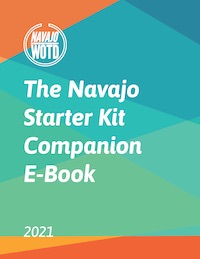atsiits'iin
the head
uh tsee tseen
This Navajo word means “the head.” Or, it can also refer to something that functions like the brain, meaning that it provides the controls to move the rest of the body.
To say “my head” the word becomes “shitsiits’iin” and “your head” is “n(i)tsiits’iin” and “his/its head” is “bitsiits’iin.” You can see with these words how to use shí, ní and bí.
So if I say to the phrase, “chidí bitsiits’iin” what do you think I am talking about? That phrase is a creative use of atsiits’iin to refer to a car or truck’s engine, referring to the piston heads that drive the motor.
